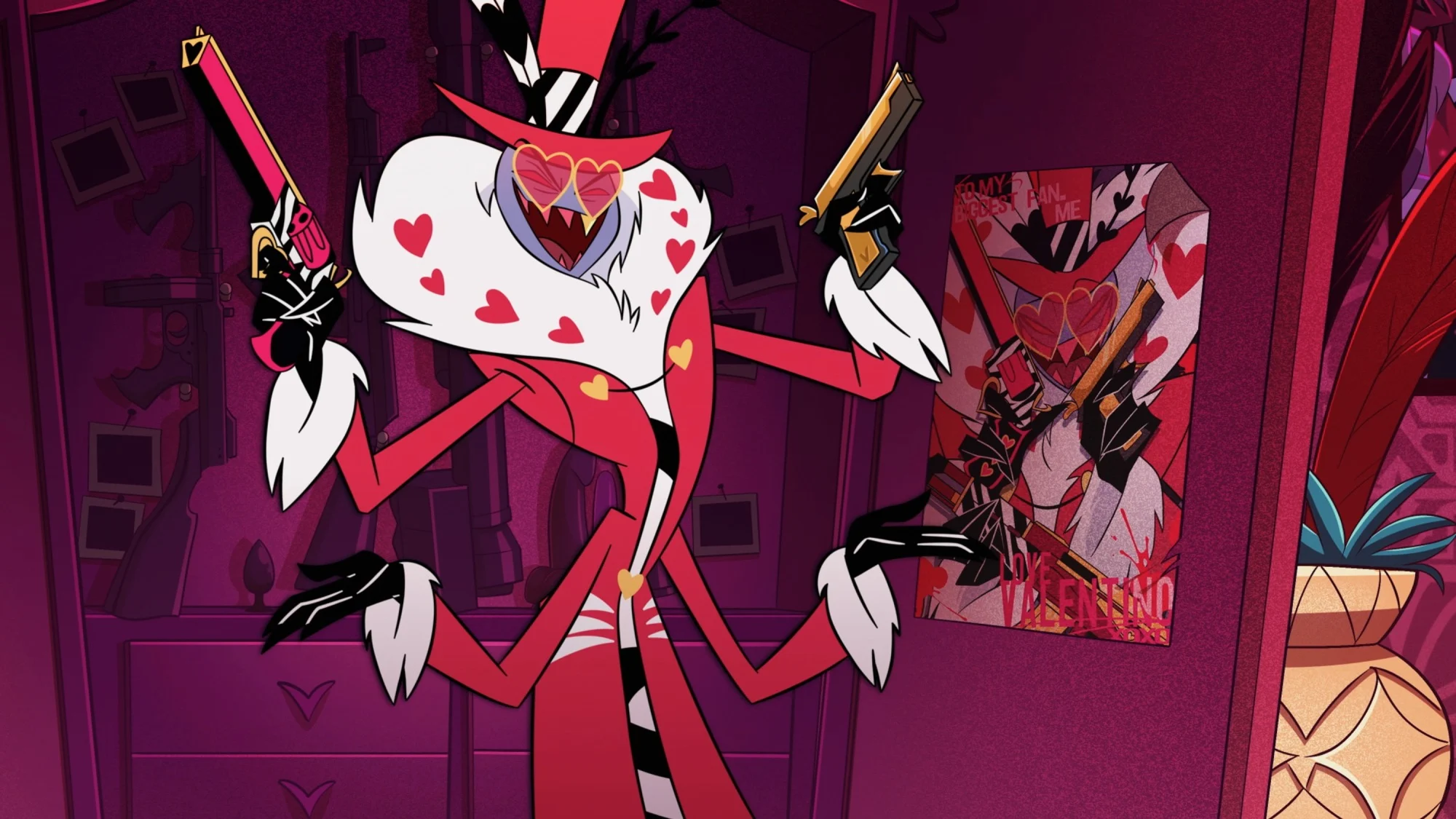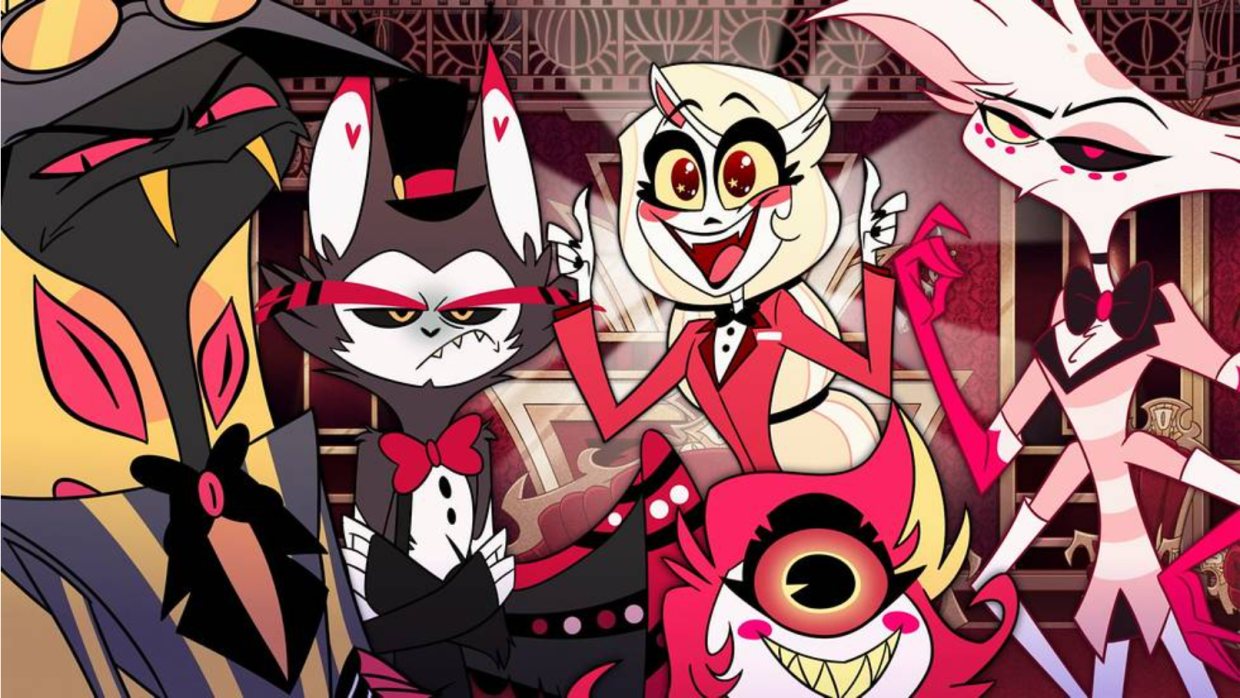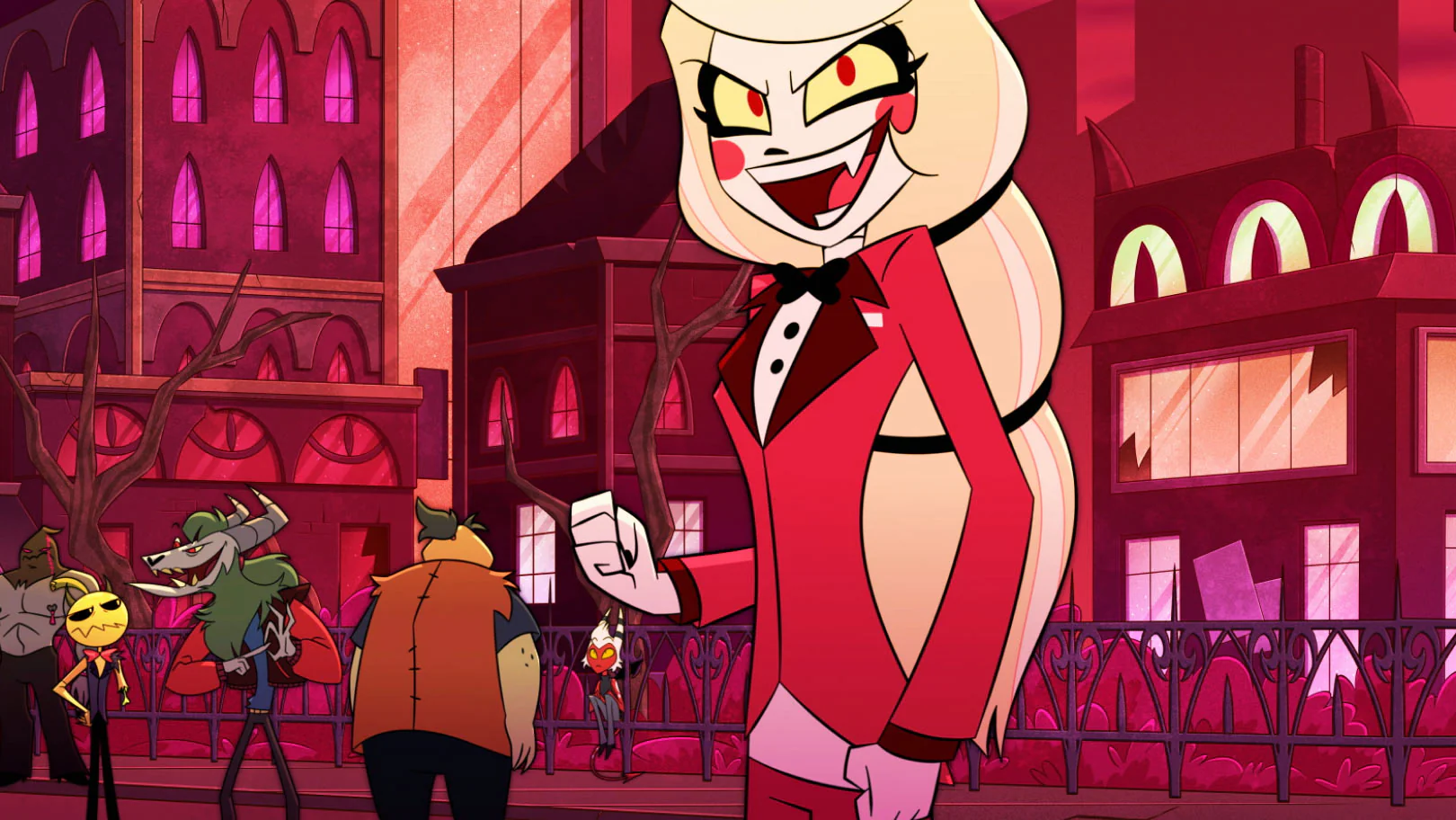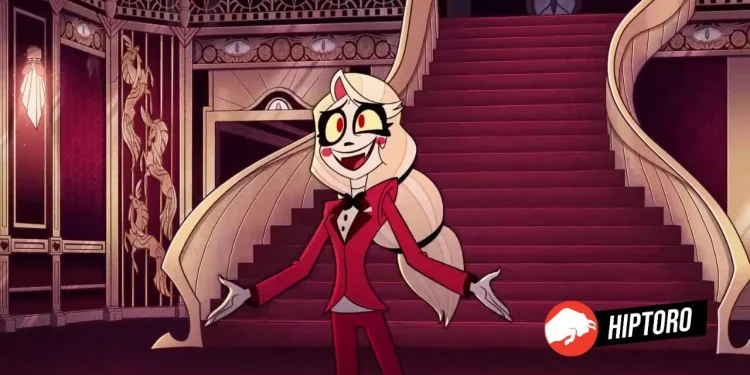In an era where animation transcends age and cultural boundaries, Amazon’s new series ‘Hazbin Hotel’ emerges as a groundbreaking spectacle. Created by the visionary Vivienne Medrano, this series, based on her viral YouTube pilot, has taken the streaming world by storm, setting new records on Prime Video.
It’s a dark, mature-themed show that doesn’t shy away from gore or controversial depictions of biblical figures. ‘Hazbin Hotel’ is not just another animated series; it’s a cultural phenomenon that has reignited discussions around sensitive topics.

Surpassing Expectations and Stirring Debate
The show’s premise is intriguing yet provocative. We follow Charlie, voiced by Erika Henningsen, the Princess of Hell, who endeavors to rehabilitate sinners post-Heaven’s annual purge. This narrative angle alone has sparked widespread debate, particularly among conservative circles. The show’s successful run, indicated by its 85% approval rating on Rotten Tomatoes, is a testament to its creative storytelling and bold thematic exploration.
A Blast from the Past: Satanic Panic Resurfaces
What’s particularly fascinating is how ‘Hazbin Hotel’ has unintentionally resurrected the echoes of the ‘Satanic Panic’ from the ’70s and ’80s. This period was marked by unfounded fears of occult practices, as noted by NPR’s coverage of the phenomenon’s resurgence through QAnon in 2021. ‘Hazbin Hotel’, in its unique way, mirrors this hysteria through its narrative and thematic elements, causing a stir among those who view it as promoting negative religious imagery.

Voices from Across the Spectrum
The reactions to ‘Hazbin Hotel’ are varied and intense. Conservative writer Kruptos accused Amazon and Prime of “working with the devil” and promoting demonic veneration. Timothy Daniel Pool, a conservative podcaster, criticized the show for misrepresenting Christian teachings, garnering significant attention with over 172K views on his YouTube video. In contrast, writer Anthony Gramuglia took to TikTok to dismiss these claims as “Satanic Panic B.S.” and reactionary responses to the show’s progressive themes.
Even prominent figures like Michael Knowles and the Washington Times have voiced their disapproval, with Knowles slamming the show for blending “Satanism and feminism” and the Times condemning it as unbiblical.
lucifer doodles#HazbinHotel #HazbinHotelLucifer pic.twitter.com/djbUrViX1w
— DorangeNut 🍉 (@DorangeNut) February 1, 2024
Breaking Stereotypes and Embracing Complexity
However, ‘Hazbin Hotel’ does more than just stir controversy. It challenges traditional narratives and societal norms. The portrayal of Lucifer, for instance, not as a one-dimensional villain but as a complex character, echoes the show’s ethos of challenging preconceived notions about good and evil. The show also bravely tackles themes of redemption and second chances, resonating with an audience tired of black-and-white moral narratives.

The Real Impact and Message of Hazbin Hotel
The show’s impact is evident in the overwhelmingly positive reviews it has received, despite the vocal minority of detractors. ‘Hazbin Hotel’ invites viewers to question conventional beliefs and embrace a more nuanced understanding of morality and redemption. It stands as a beacon of progressive thought in a medium often underestimated for its ability to convey profound messages.
‘Hazbin Hotel’ is more than just an animated series. It’s a cultural milestone that challenges viewers to think differently about the world around them. It’s a daring, innovative piece of art that pushes the boundaries of animation and storytelling, making it a must-watch for anyone interested in the evolving landscape of modern entertainment.










